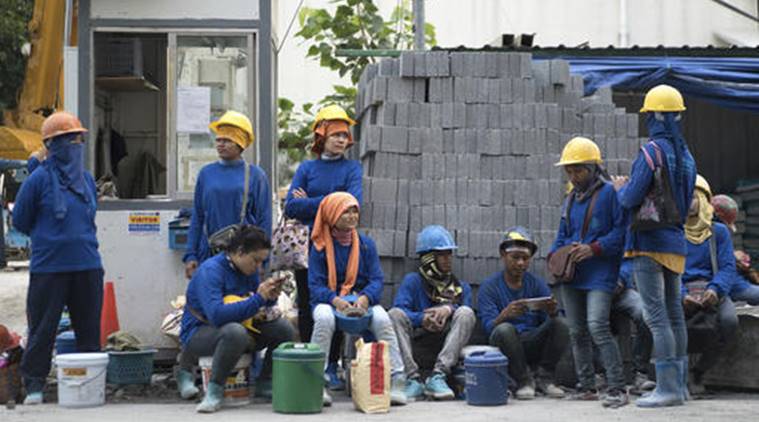Fleeing Thailand
July 3, 2017 | Expert Insights

Between June 23 to June 26, over 60,000 people believed to be working in Thailand have reportedly fled its borders. According to the immigration bureau in Thailand, this number has probably increased in the days since.
This is due to the new labor laws that have been adopted by the military government.
Background
Historically, the culture of the Kingdom of Thailand, has largely been influenced by the culture and the religions that existed in India. Back in the 1st century, under the Khmer rule, Thailand had a deep connect with Hinduism (influences of which are still visible today). It also holds the distinction of being the only nation in Southeast Asia that was never colonized in the 20th century.
However, much of its existence in the 20th century has found it under the rule of military dictatorships. There have brief periods during which a parliamentary democracy existed but those governments were overthrown. The turn of the century found Thailand embroiled in political drama with factions drawn between those who supported Thai politician, Thaksin Shinawatra and those who opposed him. He was the Prime Minister between 2001 and 2006, after which he was ousted by the military. Following the 2011 elections, his sister Yingluck came into power. A coup d'état that occurred in 2014 also ousted her and there has been military rule since.
Analysis
Thailand is a prosperous nation whose economy is the 27th largest in the world by nominal GDP. Hence, it has attracted illegal immigrants, especially those fleeing the oppressive Burmese government. Much of its manual workforce comprises of millions from Burma and Cambodia.
The nation has also become a destination for human trafficking. The US State Department published a report on Trafficking in Persons in June 2016, where it placed Thailand as a ‘Tier 2 Watchlist’ for human trafficking. The country has often been criticized for not doing much to counter that.
In part to shake that image, the country government enforced new regulations that came into effect on June 23. Under these new rules, if a foreign worker was caught in the country without the right permits, they can be imprisoned for five years. And their employers will face severe fines to the tune of $23,500 (800,000 baht).
According to Deputy Commissioner of Immigration Bureau, Pornchai Kuntee, people are fleeing due to fear. Chin Piseth, deputy chief of the Thai-Cambodia border relations office of the Cambodian army told Reuters that in a span of one week about 400 people were deported to Cambodia.
The International Organization for Migration says that there are at least 3 million migrant workers in the country but there are groups that note that this figure it quite possibly much higher.
Assessment
Our assessment is that the migrant workers in Thailand are in an extremely vulnerable situation right now. It is likely that in order to escape imprisonment these workers could be extorted by “corrupt” officials or citizens and their rights could be further compromised. This will make them even more vulnerable to human trafficking.








Comments